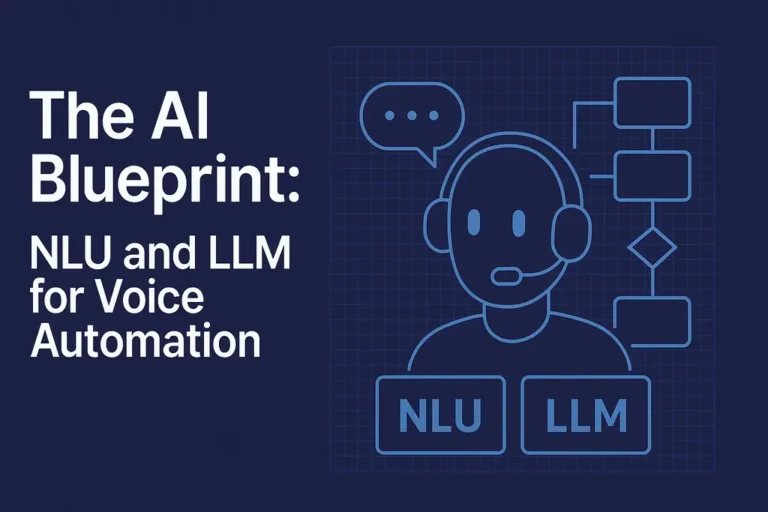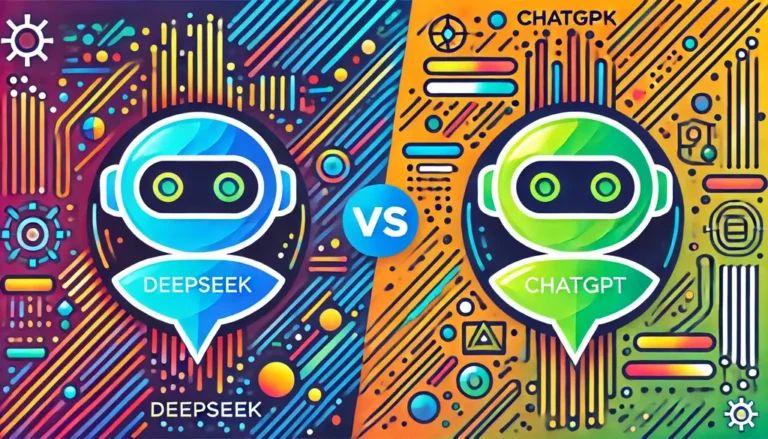For many years, the discussion of sales and customer engagement was mainly about hiring the most talented people. Nowadays, this discussion has changed. The focus now shifts from talent to the strategic allocation of resources. As leaders of the contact centers, we are always evaluating ways to increase the volume of work, keep compliance at an impeccable level, and, what is most important, reduce the cost per lead.
This situation compels us to pose the most crucial question. That is, at what point should we invest in a human sales agent and when would a state-of-the-art AI voice agent be a better, more scalable option?
These two sources are fundamentally different at their core. They work in different areas, and their financial models vary greatly as well. The main factor in constructing a high-performing sales floor is not to choose between one and the other but rather to understand their different roles and integrate them into one efficient, optimized system.
In this ultimate guide, we present a breakdown of real costs, capabilities, and tactical deployments of both human and AI sales agents. You will have the framework required to create a deeply profitable, scalable, and fully compliant hybrid sales ecosystem.
The Invaluable Contributions of a Human Sales Agent
We must understand one thing: Human sales agents will still be here. They are, and will remain, the top-tier solution for situations that require complex emotions, subtlety, and real human connection. In case your sales procedure includes expensive items, complex B2B negotiations, or very sensitive customer needs, then the human touch is the only one that cannot be replaced.
Where are humans the best?
The singular point of a human agent is their ability to possess cognitive and emotional intelligence at a deep level. Here is where the cost of their value is covered:
- Building Real Trust and Empathy: A human being is the only one who can absolutely understand and respond to the emotional state of a prospect. They are able to build the necessary rapport and trust—the very basis of any successful long-term relationship. This ability is especially important in sales situations where the transaction heavily depends on trust in the individual.
- Mastering Unstructured Complexity: Humans easily manage to guide talks, which are totally beyond the script. They can answer surprising objections, recognize even sarcasm in a person’s tone, and understand complex new information all at once without making a mistake.
- Creative Negotiation and Problem-Solving: If a customer wants a specially made, never-seen-before type of solution or needs a complex negotiation that goes beyond the standard pricing matrix, then you require a human with authority and intuition to resolve the issue creatively and make the sale.
The Costs Which Cannot Be Avoided and Limitations
On the other hand, dependence only on human agents in your staff will bring you major operational issues and increase expenses. That will be a tremendous challenge.
- High, Linear Operating Cost: The financial implication of a human agent is quite significant. It encompasses quite a few areas—competitive salary, benefits, sick pay, vacation time, and substantial overhead for recruitment, training, and administration. To double your call volume, you essentially need to double the entire cost structure. The scalability is linear, slow, and expensive.
- Ramp-Up and Consistency Challenges: The process of hiring and training a large, high-quality team takes months, thus creating big delays in meeting market demands. Additionally, factors such as tiredness, mood, and experience level lead to significant variations in performance consistency. Inconsistency here brings the risk of your brand message and, importantly, compliance adherence.
- Restricted Availability: Humans follow business hours and abide by labor laws. Because of this, you are limited in your ability to hit the best contact windows in various time zones or to carry out real 24/7 campaigns. When your lead generation skyrockets during the night, your human team is practically blind until the morning shift.
The Emergence AI Sales Agents
The limitations of human resources in scaling and costs are the primary reasons AI voice agents have emerged as a critical solution category. A solution such as the Bigly Sales AI voice agents is designed to address issues related to volume, compliance, and consistency at a cost structure that changes the economics of outreach fundamentally.
AI agents will not replace your closers; they will keep outreach and qualification consistent and scalable.
The Engine of Consistency and Compliance
An AI voice agent’s primary strength lies in its uncompromising ability to perform the same task flawlessly each time. Any human is incapable of reaching that level of mechanical consistency.
- Flawless Script Adherence: The AI agent accurately follows the approved script.
- Automated Regulatory Risk Mitigation: Compliance failure is a huge business risk. AI is designed to cope with the essential safeguards automatically, thus eliminating human error from the equation:
- DNC Scrubbing: Automated, real-time checks against Do Not Call lists that are performed just before every dial.
- TCPA Enforcement: Strict adherence to local dialing time zones (8:00 AM to 9:00 PM) for each and every prospect, regardless of where the agent is located.
- DNC Scrubbing: Automated, real-time checks against Do Not Call lists that are performed just before every dial.
- TCPA Enforcement: Local dialing time zones (8:00 AM to 9:00 PM) are strictly followed for every single prospect, regardless of where the agent is located.
- Instant, Infallible Audit Trails: Every single interaction is, immediately, logged and documented with a thorough, unalterable record. The importance of this precise audit trail lies in its usage for risk mitigation and for providing a defense against possible legal challenges.
Unmatched Speed and Scalability
Speed is profit in sales. The AI agents will give you the vital benefit that is instant scalability, without the months-long burden of recruiting.
- Zero Latency Response: The AI platform is capable of taking the first step towards a new lead within a matter of seconds. Minimal speed-to-contact is a statistically proven way of increasing conversion rates, especially in the case of internet leads.
- Instant, Massive Deployment: Are you required to handle a sudden surge of 50,000 leads tomorrow? You simply change a setting on the AI platform. It can facilitate hundreds or even thousands of simultaneous outbound calls right away to take on heavy volume that would otherwise bring a human team to a standstill.
- True 24/7 Availability: AI agents do not require rest. They are always ready to work and are only limited by local dialing laws. This true 24/7 functionality ensures that you are constantly engaging with prospective customers during their best contact window, anywhere in the world.
A Head-to-Head Comparison
To make a wise investment, we must consider the factors beyond features and put these resources head-to-head based on business metrics that indicate profitability.
1. Cost Per Qualified Lead (CPQL)
This metric illustrates the effectiveness of converting raw data into immediate sales opportunities.
| Metric | Human Sales Agent | AI Voice Agent | Strategic Advantage |
|---|---|---|---|
| Cost Structure | High, variable, linear. Costs scale directly with every new hire. | Low, fixed, marginal. Costs only increase slightly with massive volume scaling. | AI Win: Dramatically lowers the base cost of qualification, freeing up budget for closing incentives. |
| Old Data Utilization | Too expensive to justify—the labor cost outweighs the low conversion probability. | Highly profitable, as the cost per dial is negligible. | AI Win: Converts stranded, low-probability assets (old data) into a consistent stream of newly qualified leads. |
| Idle Time/Overhead | High cost of non-productive time: breaks, manual CRM entry, dialing latency, and sick leave. | Near-zero cost when idle; only active cost when actually engaging a prospect. | AI Win: Ensures that every dollar spent on outreach is productive, minimizing administrative waste. |
2. Speed and Latency
Latency in sales is a silent killer. The time from when a lead shows interest until the first contact is made should be as short as possible.
- Speed-to-Contact: The capability of an instant first contact with a new lead right after submission is a must-have. Sorry, but humans just cannot be on par with the almost immediate action of an AI system, especially if it is outside of the standard shift hours.
- Velocity and Volume: AI agents remove all the friction points in the dialing process: listening to rings, manual data entry, and slow dispositioning. They maximize the number of valid connections made per hour, thus delivering qualification at a rate that is simply impossible for human teams to sustain.
3. Compliance and Risk Management
Risk management is a central focus of the executive agenda. The goal is set for low-risk, high-volume operation.
- Rule Reliability: The AI platform is perfect in providing mechanical rule enforcement. It must consistently check the DNC list and accurately determine the local time zone. Thus, it eliminates the risks associated with human oversight and fatigue.
- Data Integrity: The AI initiates a complete, time-stamped, and tamper-proof log of every discussion without any assistance from the human. This level of documentation is very helpful for ensuring quality and meeting regulations, as it provides a level of trust in audits that manual logging can’t achieve.
Creating the Best Hybrid Sales Ecosystem
The smartest leaders at contact centers don’t consider it a decision from two sides. To them, it is an optimization plan. In a hybrid model, leveraging the most efficient resource (AI) for suitable tasks maximizes the return on your costly human closers.
The High-Volume Qualifier
Tasks that involve high volume, high repeatability, and strict compliance should be assigned to AI voice agents:
- Top-of-Funnel Filtering: The use of large, cold, or aged lead lists to very quickly find out the dead numbers, wrong contacts, and those with zero interest. This leads to a reduction of 50% or more in the number of unnecessary human calls.
- Gather essential 5-7 data points (e.g., budget, timeline, existing solution) to confirm a prospect’s qualification before involving a human.
- Automated Appointment Setting: Dealing with the unexciting going-back-and-forth scheduling and nurturing sequences, thus making sure that every handing over to a human agent is a meeting that has been confirmed and scheduled.
Giving AI the heavy, high-volume, front-end tasks significantly reduces the overall Cost Per Contact (CPC) for the entire organization.
The Strategic Closer
Essentially, your human sales representative will transition from a low-paid dialer role to a highly specialized, well-paid closer role. They should, ideally, spend their entire day conversing with the pre-qualified, warm prospects from whom they receive them.
- Receiving Warm Live Transfers: Warm transfers from the AI agent will be provided directly, live, and without interruption. The human agent starting the conversation is already familiar with the prospect’s needs, qualifications, and expressed interest—thus, no cold introduction is required.
- Complex Deal Negotiation: They focus the commitment of their energy and the power of their intuition solely on the last stages of the deal: grappling with intricate objections, creating customized contracts, and dealing with price sensitivity.
- Strategic Relationship Management: Maintaining and developing high-value client relationships, which is essentially the long-term retention and heavily recurring revenue’s engine.
This labor division boosts staff morale, reduces employee turnover, and ensures your salary investment drives revenue and value.
Final Takeaway
The strategic use of AI voice agents has become a business imperative for contact centers that prioritize sustainable growth.
While the human element remains crucial in terms of empathy and complexity, the future of outreach lies with systems that can ensure flawless consistency, vast scale, and complete compliance around the clock. By transferring your high-volume, low-value work to AI, you make a volatile variable cost into a predictable operating expenditure.
This step does not only decrease your CPA. Instead, it stabilizes your entire sales pipeline, allowing human closers to focus on what they’re best at: developing relationships and closing profitable deals.
The leaders who are the most successful are the ones who see the optimization opportunity both for their people and their platforms, thus creating a just, unstoppable hybrid machine.
Frequently Asked Questions (FAQs)
Q1: Is AI replacing human sales agents entirely?
A: The answer is no. Replacement is not the goal, but optimization is. AI voice agents perform the initial qualification, data gathering, and appointment setting—tasks that are high-volume and repetitive. This way, human sales professionals are the ones to whom the focus, time, and expertise should be given, i.e., complex negotiation, relationship building, and closing high-value deals. Viewing AI as a strategic support system ensures that humans exclusively handle highly qualified leads.
Q2: How is an AI agent able to ensure TCPA compliance better than a human?
A: AI agents carry out compliance in a very strict, mechanical, and consistent manner; thus, the human errors are totally eliminated. The platform is designed to verify the local time zone of each and every prospect and it won’t place a call if it is outside the legally allowed hours (usually 8:00 AM to 9:00 PM). Here, automated, rule-based execution provides a level of risk mitigation that manual human oversight cannot match.
Q3: What is the direct financial benefit of using AI for high-volume dialing?
A: The greatest financial benefit lies in a substantial reduction of the Cost Per Qualified Lead (CPQL). AI changes the cost structure from that of high, variable labor costs to that of a low, fixed-cost technological expenditure. By so doing, it allows one to economically and profitably tackle gargantuan lists of cold or aged data that would have been exorbitant had they been dealt with by a human team. Ultimately, this process leads to a decrease in customer acquisition costs.
Q4: Can AI voice agents handle complex prospect questions?
A: Modern AI voice agents adeptly manage multipath conversational flows and can answer many common questions from a vast knowledge base. However, true human empathy and creative problem-solving abilities for handling novel, unstructured objections are beyond the reach of AI voice agents. They are adept at running qualification scripts and providing detailed, consistent information, which helps to warm up the prospect for a human transfer.
Q5: How quickly can I scale my outreach volume using AI?
A: One of AI’s major benefits is its scalability. An AI voice agent platform can scale without delay, unlike human teams that require months for hiring and training. Usually, you can simply change a setting to increase the number of concurrent outbound calls, and your organization will be ready to instantly respond to sudden spikes in leads or market opportunities without any operational downtime.







